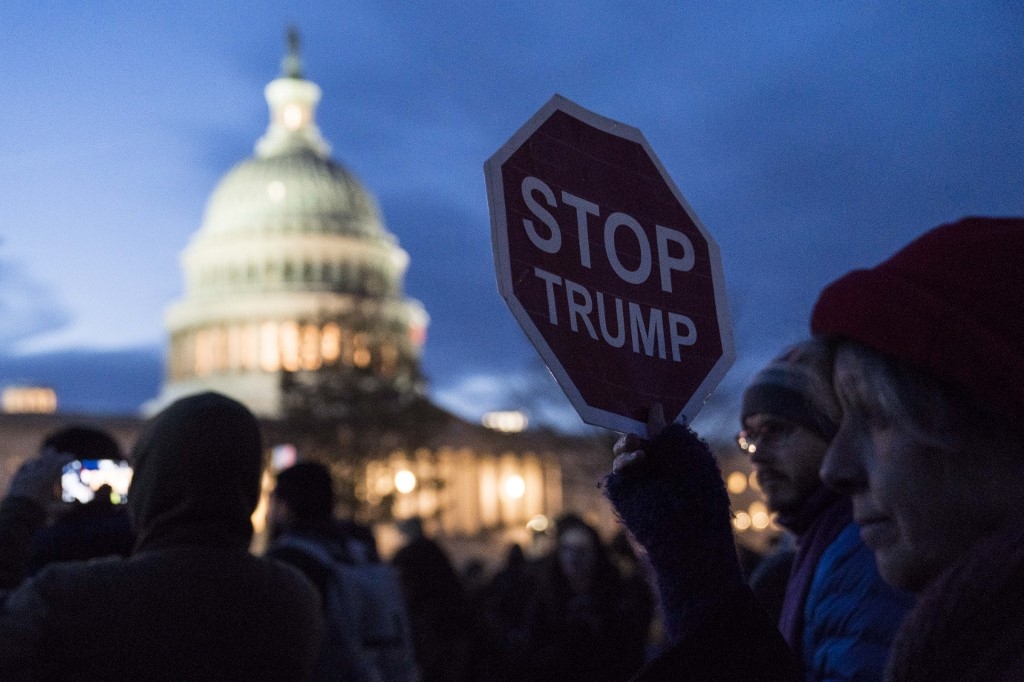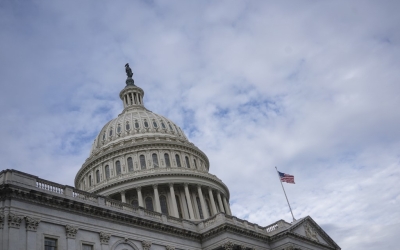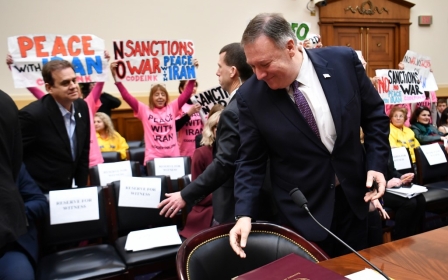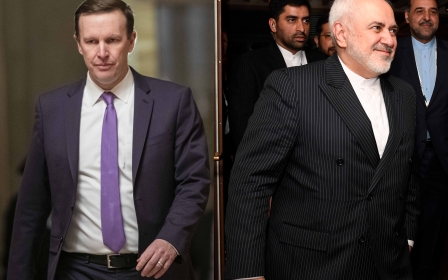US House passes bill to limit Trump's war powers against Iran

The US House passed an Iran War Powers Resolution that would bar President Donald Trump from ordering strikes against Iran without first seeking Congress's explicit permission.
The resolution passed in a 223 to 188 vote along party lines, with only three Democrats voting against and no Republicans voting in favour.
Republicans in the House attempted to block the vote with a motion to get the legislation sent to committee, but the motion failed and the bill went to vote with little debate.
Introduced by Virginia's Democratic Senator Tim Kaine, the bill passed in the Republican-controlled Senate last month, serving as a rebuke to Trump's recent handling of relations with Iran.
The legislation will now go to Trump's desk where it will likely get struck down by a presidential veto.
The US president has faced bipartisan criticism over his order to assassinate Iranian top general Qassem Soleimani in Iraq without congressional approval in January.
Still, Republicans in the House have been less critical than some of their Senate counterparts.
Texas Representative Michael McCaul, on Wednesday defended the strike, speaking out against the Iran War Powers bill.
"Soleimani was a terrorist and America is safer without him," McCaul said, which was received by applause from some of his colleagues.
Following the strike against Soleimani in January, a majority of lawmakers pushed the Trump administration for answers, having not been consulted before the order was given.
Engel: Trump has until 'end of the week'
Secretary of State Mike Pompeo spoke before the House Committee on Foreign Affairs in late February, after rejecting two previous invitations to testify on the Soleimani strike.
Still, House Democrats were unsatisfied with the two-hour testimony, during which Pompeo failed to provide any new information regarding the necessity of the strike or the reason Congress was not briefed beforehand.
Representative Eliot Engel, chairman of the committee, released a statement earlier on Wednesday reiterating his dissatisfaction with Pompeo's testimony.
"I had hoped that Secretary Pompeo’s appearance before the Foreign Affairs Committee would provide the American people with answers about the Trump Administration’s Iran policy, especially the strike on Soleimani and the path forward," Engel said.
"Unfortunately, Mr. Pompeo avoided answering most direct questions and was unable to account for the administration’s shifting explanations since the strike at the start of the year."
He demanded that answers be provided by the end of the week, asserting that Trump had failed to comply with National Defense Authorization Act. That act requires the president to submit a report by 1 March of each year on the legal and policy frameworks for the US's use of military force and national security operations.
"If I don’t receive the information I’ve requested by the end of the week, I’ll use all the power of the Foreign Affairs Committee to compel the administration to provide these answers to Congress and the American people," he said.
During last month's hearing, Pompeo rebuffed Engel's criticism, telling the committee that the Trump administration had briefed Congress 70 times in various forms after its strike against Soleimani.
Pompeo doubled down on the Trump administration's stance that the US strike against Soleimani was taken to prevent "an imminent attack" against American personnel and four US embassies.
Still, lawmakers at the hearing demanded details of what "imminent threat" existed and which embassies were under threat, with one lawmaker blatantly accusing the administration of lying in regards to the alleged threats against US embassies.
In Wednesday's statement, Engel said that the defense secretary had also ignored "numerous requests" made by the chairman for information on the use of military force, "including the Soleimani strike".
Middle East Eye delivers independent and unrivalled coverage and analysis of the Middle East, North Africa and beyond. To learn more about republishing this content and the associated fees, please fill out this form. More about MEE can be found here.





